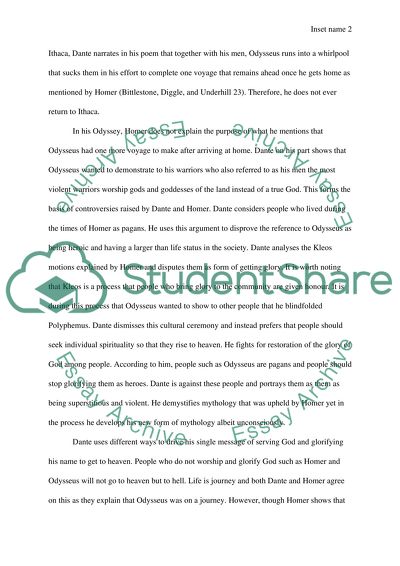Cite this document
(“Homer's Odysseus and Dante's Ulysses Essay Example | Topics and Well Written Essays - 1250 words”, n.d.)
Retrieved de https://studentshare.org/literature/1482939-homers-odysseus-and-dantes-ulysses
Retrieved de https://studentshare.org/literature/1482939-homers-odysseus-and-dantes-ulysses
(Homer's Odysseus and Dante'S Ulysses Essay Example | Topics and Well Written Essays - 1250 Words)
https://studentshare.org/literature/1482939-homers-odysseus-and-dantes-ulysses.
https://studentshare.org/literature/1482939-homers-odysseus-and-dantes-ulysses.
“Homer's Odysseus and Dante'S Ulysses Essay Example | Topics and Well Written Essays - 1250 Words”, n.d. https://studentshare.org/literature/1482939-homers-odysseus-and-dantes-ulysses.


